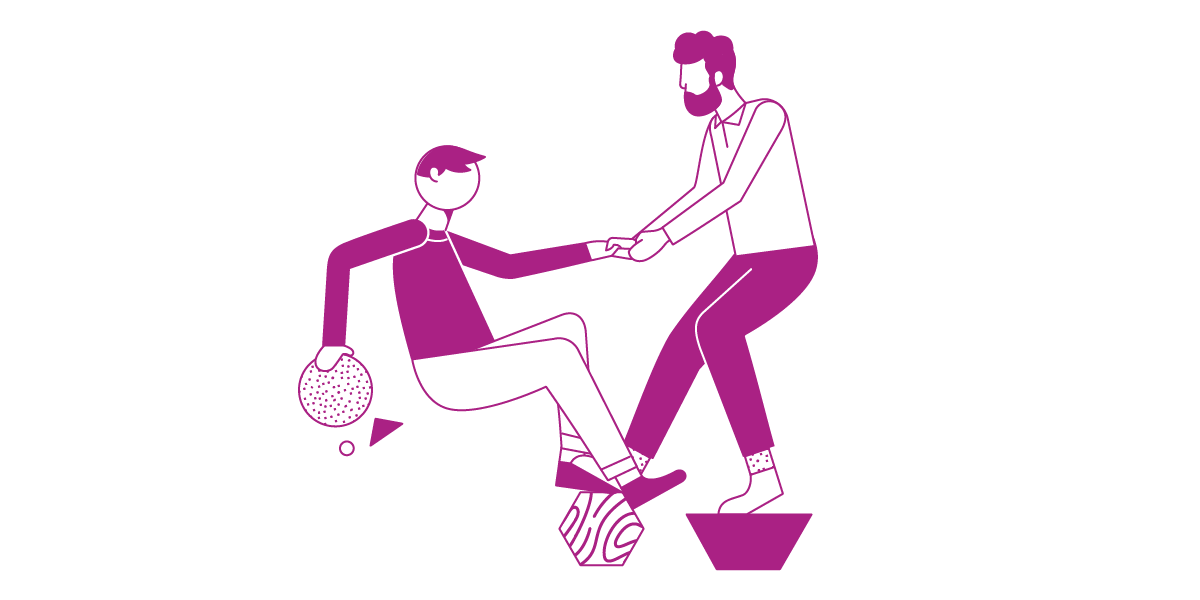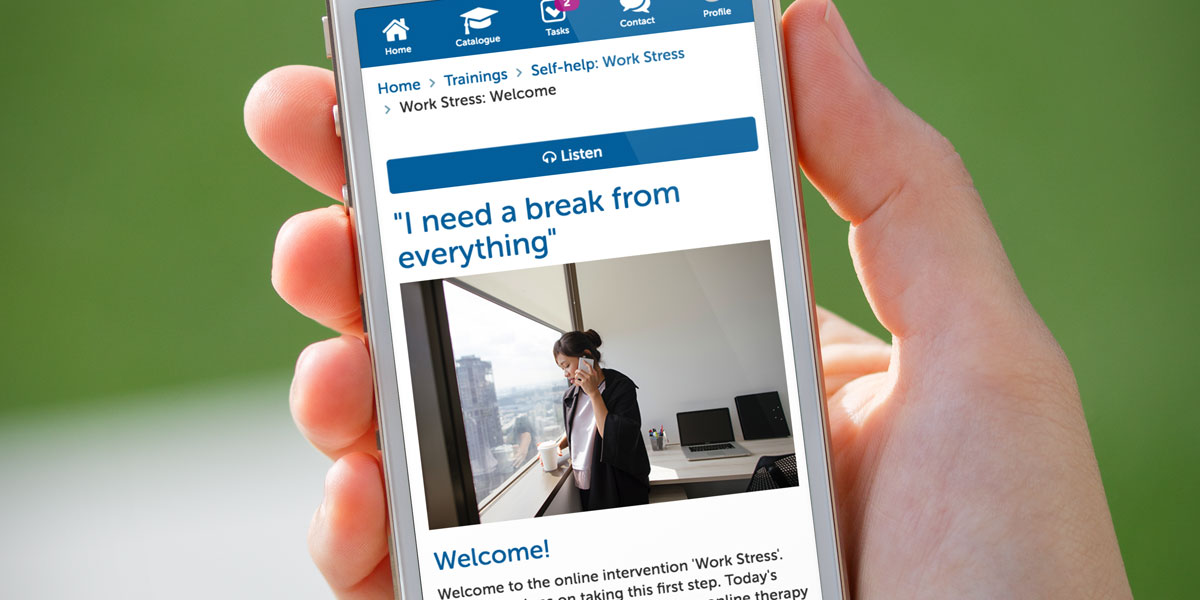Tackling workload stress and absence in healthcare
Almost half of UK NHS staff claimed to not have enough time to finish their tasks, according to the NHS Staff Survey back in 2011. It's becoming increasingly apparent that those working in healthcare experience an above-average workload and often have less freedom to organise their work themselves.
In the years since that survey, not a lot seems to have changed about this situation. There are many causes for the problem of burnout and high levels of stress among healthcare workers, which cannot all be solved in the short term. But what can be done to tackle it?
 How can we help healthcare workers to stay balanced?
How can we help healthcare workers to stay balanced?
The causes of work pressure in healthcare
Why are workloads in healthcare often so unmanageably high, with all of the known health consequences? The reasons are diverse and complex, but the following causes play a role.
Firstly, there are often staff shortages. The demand for care is growing, partly due to pressure from an ageing population. But, the number of people being trained to become caregivers is not increasing in line with this. In short, there are too few people to do the work, resulting in a 'fight' for care personnel.
Working in healthcare is often twice as emotionally stressful as the average workplace
Care and clinical work is often emotional work. This can mean that the nature of the work is demanding and carries a greater burden. Healthcare workers also often have a great sense of responsibility. They know that if they call in sick, for example, their colleagues will have to work even harder in their absence, causing workers to risk feeling as though they are 'abandoning' their patients or clients. This too can contribute to a greater-felt workload.
Finally, we have the administrative burden that many healthcare workers complain about, the low degree to which they can organise their work themselves, and other working conditions such as irregular working hours.
Pressure both inside and outside of work
It's not surprising that with some of these pressures, healthcare workers can struggle to 'switch off' outside of working hours, and are likely to be guilty of 'taking their work home with them' on an emotional level. This means their wellbeing can be negatively impacted at home as well as at work. Additionally, those working in healthcare positions are more likely to also be informal carers in their personal lives than those in any other profession.

Sustainable employability in healthcare
What is 'sustainable employability' and why should we pay attention to it? If you employ someone in a sustainable way, it means that you do everything to keep that person working with you for as long and as healthily as possible. This is particularly important in a work environment where people are under pressure from conditions such as staff shortages, like healthcare workers. If employees aren't supported, employers run the risk of having higher rates of staff sickness and resignations. And besides being undesirable in the human sense, the question arises at the same time: who will then take over their work?
Now, it sounds nice to keep your employees working for as long as possible and in a healthy way. But how do you achieve that?
Work happiness prevents absence
Recently, much attention has been given to work happiness, as part of vitality and sustainable employability. Maaike de Haan, labour and organisation expert and owner of DHCwerkt, is one such advocate of job happiness who has guided many people who have dropped out of work. "I have never spoken to anyone who said: I have a lot of work pressure. They talk about headaches or other medical complaints." Only when things go wrong is work happiness, what drives you and what makes you happy, discussed. "Then people find it very difficult to find answers to these questions."
People fall out with headaches or other medical complaints, but this may be due to work pressure.
Happiness is often hard to find among people who drop out, but does it also work the other way around? Are people who are happy in their work less satisfied? "Certain situations of failure can certainly be prevented," says De Haan. "If you make people think about their work regularly, they may make other choices and not get stuck in a job".
Those who feel comfortable at work are more balanced. "Don't wait to take action until things have gone wrong," says De Haan. "An adult conversation already facilitates a lot. The working relationship is maintained in this way." De Haan also provides training and coaching to help people and companies with this.
Workplace wellbeing as a solution?
Besides work happiness and satisfaction from your work, there are other factors that play a role in vitality. Physical health and lifestyle, for example. Eating a little healthier or exercising a little more can play a major role in how someone feels physically and mentally. Or think about sleeping well: if you can help people who regularly struggle with sleep to be able to sleep better, for example through cognitive behavioral therapy techniques, this increases their capacity and gives them more energy. For people who find it difficult not only to rest after work but also to recharge, for example because they worry a lot, it can help to practice relaxing.
 The Minddistrict work stress module can improve mental health in the workplace
The Minddistrict work stress module can improve mental health in the workplace
All of these things put together, tailored to someone's personal situation, can have a major effect on someone's employability. Ironically, things like healthy cooking and eating or watching your sleep often disappear into the background when you are busy. While they are important then.
Behavioural change is difficult, also for healthcare staff. So let's help people with it.
At the same time, there are things that we think everyone should be able to do for themselves. For example, it's no surprise (especially to healthcare workers!) that you should eat healthily. But don't forget, behavioural change is difficult. And a little help, explanation or coaching, whether online or not, can help someone in the right direction. It is really beneficial to support people in their vitality.
Vitality programs are not a quick-fix. If there are structural problems within a healthcare organisation, it is of course necessary to solve them. But, by promoting vitality and resilience you can help your colleagues to stay healthy and find balance. This leads to fewer dropouts at work, which in turn has a positive effect on the rest of the staff.
How do you make the first step?
Working on prevention, job happiness and vitality among your employees can be done in many ways: via an external coach, via your health and safety service, in group sessions or as self-help. This kind of behavioural change can also be perfectly supported with online interventions and modules using the Minddistrict online platform. Minddistrict has been used in healthcare for years to support clients and patients in making a behavioural change. So why not also use ehealth for healthcare staff themselves?
There are various options for achieving this. Feel free to contact us for a free demonstration or advice.
Or read more about how workplaces can benefit from the Minddistrict platform.
